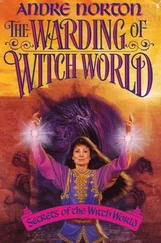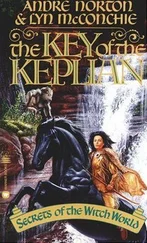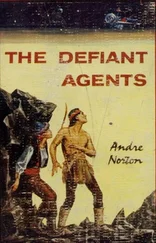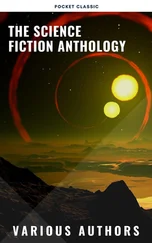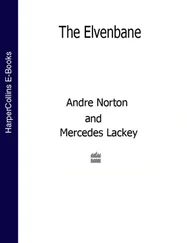The Terran people, of course, were totally unsatisfied with this result. Led by some demagogues and, to a milder degree, by most of the political opposition to the existing Terran government, and reminded of certain actual examples from Terra’s own history, many became convinced that some form of nefarious “brainwashing” had been exercised upon the “unfortunate” Terran expatriates. Excitement ran high, and there was even some agitation for withdrawal from the Galactic Union.
Confronted with such unrest, the Terran government made efforts to reach some settlement with Boötes despite the decision of the Court in Sol v. Boötes , and was finally able to gain in the Centaurian Agreement a substantial reparation, it being specifically stipulated in the Agreement that the money was to be paid to the dependents who suffered actual financial loss.
In a suit against the Terran government by one of the excluded families, to obtain for that family a share of the reparation, the validity of the treaty, as it applied to exclude the suing family and others in like position, was upheld by the United States Supreme Court.
The suit was begun before the Agreement had been ratified by the General Assembly, and the Court indicated that the plaintiff would have lost on the strength of a long line of cases giving the World President certain inherent powers over the conduct of foreign affairs. Since, however, the matter came up for decision after ratification, the Court said that the “inherent powers” question was moot, and that the Agreement, having been elevated to the status of a treaty by ratification, must be held valid under the “Supremacy of Treaties” section of Article 102 of the United Terran Charter.
Although this failed to satisfy the Terran people—and their anger may have contributed to the fall of the Solarian Party administration in the following election—the Treaty is generally considered by students of the subject as a triumph of Solarian diplomacy, and an outstanding example of intergalactic good faith on the part of Boötes.
Of course, neither the demagogy nor the anger could hide forever the true facts about how the Boöteans were treating their “slaves,” and when the true facts became known, there was a sudden flood of migration from Terra to Boötes, which threatened to depopulate the Solarian Empire and drown Boötes. The flood was quickly dammed by the Treaty of Deneb restricting migration between the two systems. This treaty was held to be a valid police-powers exception to the “Free Migration” principle of Article 17 of the Galactic Compact in Boleslaw v. Sol and Boötes .
All this left Skrrgck with liabilities of some forty million credits and practically no assets. Like most Altairians, he was a superb thief but a poor trader. The price he had received for the Merchandise Mart and the “slaves,” while amounting to a tidy personal fortune, was less than half the amount of the claims against him, and due to an unfortunate predilection for slow Aedrils and fast Flowezies , he only had about half of that left.
Skrrgck, who had by this time apparently developed a love of litigation equal to his love of thievery, used part of what he did have left in a last effort to evade liability by going into bankruptcy, a move which was naturally met with howls of outrage by his creditors and a flood of objections to his petition, a flood which very nearly drowned the Federal District Court in Chicago.
It would be difficult to imagine a more complex legal battle than might have taken place, nor one more instructive to the legal profession, had the situation been carried to its logical conclusion.
On the one hand was the age-old policy of both Terran and Galactic bankruptcy law. A man becomes unable to pay his debts. He goes into bankruptcy. Whatever he does have is distributed to his creditors, who must be satisfied with what they can get out of his present assets. They cannot require him to go to work to earn additional funds with which to pay them more. It is precisely to escape this form of mortgage on one’s future that bankruptcy exists.
Yet here were over seven thousand creditors claiming that Skrrgck’s debts should not be discharged in bankruptcy, because Skrrgck could be required to steal enough to satisfy them fully.
Could the creditors require Skrrgck to exert such personal efforts to satisfy their claims? A lawyer would almost certainly say “no,” citing the Bankruptcy Act as sufficient grounds alone, not to mention the anomaly of having Terrans, in a Terran court, ask that Skrrgck, for their benefit, commit an act illegal on Terra and punishable by that Terran court.
The idea of a Terran court giving judicial sanction to theft is novel, to say the least. Indeed, Judge Griffin, who was presiding, was overheard to remark to a friend on the golf course that he “would throw the whole d—n thing out” for that reason alone.
Yet, in spite of this undeniable weight of opinion, it is difficult to say just what the final decision would have been had the matter been carried to the Galactic Tribunal, for in the original case of Skrrgck v. Illinois , that august body, it will be remembered, had specifically stated that Skrrgck was liable for the value of the building and its occupants, “even if he must steal to obtain it.”
Now that hasty and ill-advised phrase was certainly dicta, and was probably intended only as a joke, the opinion having been written by Master Adjudicator Stsssts, a member of that irrepressible race of saurian humorists, the Sirians. But if the case had actually come before them, the Court might have been hoist on its own petard, so to speak, and been forced to rule in accord with its earlier “joke.”
Unfortunately for the curiosity of the legal profession, the question was never to be answered, for Skrrgck did a remarkable thing which made the whole controversy irrelevant. What his motives were will probably never be known. His character makes it unlikely that he began the bankruptcy proceedings in good faith and was later moved by conscience. It is possible that the bankruptcy was merely an elaborate piece of misdirection. More probably, however, he simply seized on the unusual opportunity the publicity gave him.
Whatever the motives, the facts are that Skrrgck used the last of his waning resources to purchase one of the newly developed Terran Motors’ “Timebirds” in which he traveled secretly to Altair. Even this first model of the Timebird, with its primitive meson exchange discoordinator, cut the trip from Sol to Altair from weeks to days, and Skrrgck, landing secretly on his home planet while his bankruptcy action was still in the turmoil stage, was able to accomplish the greatest “coup” in Altairian history. He never could have done it without the publicity of the legal proceedings. In a culture where theft is honorable, the most stringent precautions are taken against its accomplishment, but who could have expected Skrrgck? He was light-years away, trying to go into bankruptcy.
And so, while all eyes on Altair, as well as throughout the rest of the Galaxy, were amusedly fixed on the legal circus shaping up on Terra, Skrrgck was able to steal the Altairian Crown Jewels, and the Altairian Crown Prince as well, and flee with them to Sol.
The reaction was violent. The Galaxy was gripped by an almost hysterical amusement. Skrrgck’s creditors on Terra were overjoyed. The Altairians made one effort to regain their valuables in the courts, but were promptly turned down by the Galactic Tribunal which held, wisely, that a society which made a virtue of theft would have to take the consequences of its own culture.
So Skrrgck’s creditors were paid in full. The jewels alone were more than sufficient for that, containing as they did no less than seven priceless “Wanderstones,” those strange bits of frozen fire found ever so rarely floating in the interstellar voids, utterly impervious to any of the effects of gravitation. Altair paid a fantastic price for the return of the collection, and Skrrgck also demanded, and got, a sizable ransom for the Prince, after threatening to sell him to Boötes, from whence, of course, he would never return. Being a prince in a democratic, constitutional monarchy is not as glamorous as you might think.
Читать дальше


